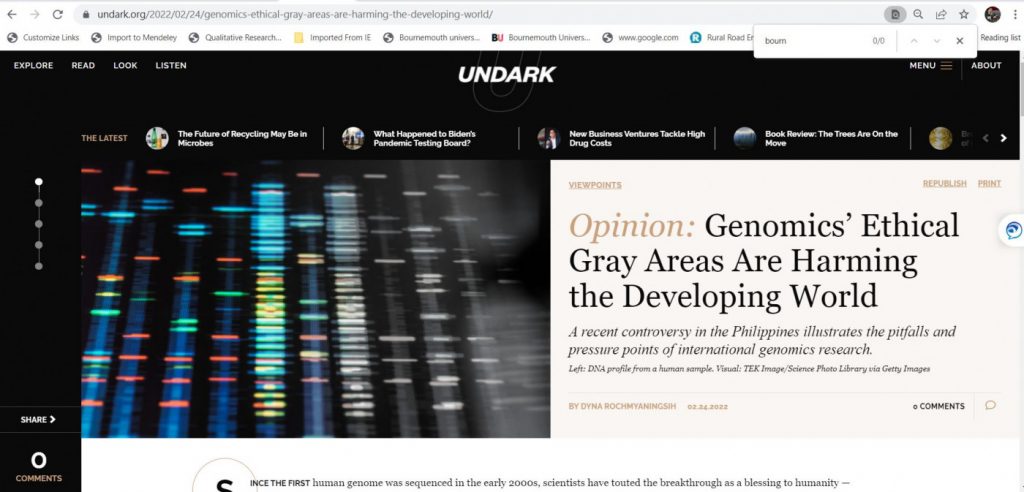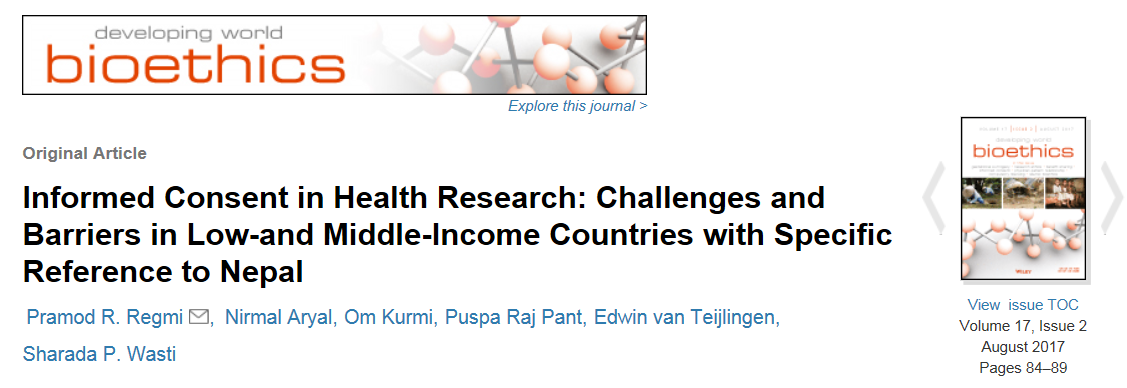By Prof Jonathan Parker, Chair of the Social Sciences & Humanities Research Ethics Panel
 It can be very easy to become a little confused about research ethics processes within universities. The spread of research ethics review has grown inexorably in the UK since 2005 when the, then, Department of Health introduced research ethics scrutiny into social care following developments since Nuremberg and the Declaration of Helsinki which established biomedical ethical review processes to safeguard against potentially serious harms to research participants. The introduction of research ethics into arts, humanities, and social sciences, alongside biomedical and natural science research, has not always been easy, and confusions with homogenous processes have been critiqued. However, over the last 16 years, UK universities have seen the establishment of research ethics review processes through the formation of research ethics panels. These differ across universities in their operational minutiae and focus, although there are similar forms and underlying criteria in each to ensure that funding bodies, publishing houses and universities can assure themselves of due process and consideration in safeguarding both those participating in research studies and themselves.
It can be very easy to become a little confused about research ethics processes within universities. The spread of research ethics review has grown inexorably in the UK since 2005 when the, then, Department of Health introduced research ethics scrutiny into social care following developments since Nuremberg and the Declaration of Helsinki which established biomedical ethical review processes to safeguard against potentially serious harms to research participants. The introduction of research ethics into arts, humanities, and social sciences, alongside biomedical and natural science research, has not always been easy, and confusions with homogenous processes have been critiqued. However, over the last 16 years, UK universities have seen the establishment of research ethics review processes through the formation of research ethics panels. These differ across universities in their operational minutiae and focus, although there are similar forms and underlying criteria in each to ensure that funding bodies, publishing houses and universities can assure themselves of due process and consideration in safeguarding both those participating in research studies and themselves.
At BU, research ethics is governed by an overarching university research ethics committee, which is chaired by an independent lay member. This committee deliberates the processes of research ethics in two operational panels and develops strategies and policy that are presented to Senate for consideration and ratification. It is the two research ethics panels with which most academics are likely to have dealings. We have one panel specifically dedicated to science, technology and health research chaired by Prof Sam Porter and a second concerned with the social sciences and humanities (including practice-based arts) chaired by Prof Jonathan Parker. Both panel chairs are supported by a deputy – Associate Prof. Dr Jayne Caudwell in science, technology and health and Prof Richard Berger in social sciences and humanities. The panels comprise members from across the university’s faculties and departments aiming for broad expertise, disciplinary scope and balance. Roles on the panels are undertaken for a period of three years, with the opportunity of renewal (maximum five years), to ensure there is continual refreshing of the membership, thinking and practice and also continuity.
Each panel meets on a monthly basis to scrutinise research ethics checklists and accompanying documentation, such as Participant Information Sheet and Participant Agreement Forms, from academic staff and PGRs (high risk) to ensure that ethical, moral and governance issues are met and to offer advice and support to researchers. The researchers, themselves, are invited to attend discussion at a panel meeting, which currently takes place online, and to present their studies and engage in debate about the ethical implications of their work and how potential harms can be prevented and mitigated. The process is designed to be collegiate and supportive and to ensure that research can be undertaken. Of course, attending the panel can raise anxieties but members try hard to put people at their ease and to keep the focus on developing the best possible research project in ethical terms. The panels are there to consider first and foremost any ethical issues that may arise within the proposed research and how this is addressed. However, it may be the case that questions are raised about the way the research is presented in outward facing documents or how the research is designed. The reasons for this are not to take issue with the academic thrust or to champion a particular methodology or research philosophy but to consider the effects on people and the confidence they can have in the research – so, they become an ethical concern.
What we look for in a good, ethically sound research proposal is:
- A clear, coherent approach to the research
- Explicit consideration of issues affecting potential participants, researchers, general public, discipline and university
- A concern for moving beyond from simply ‘doing no harm’ to actively benefitting people and society wherever possible
- A focus on maintaining dignity, privacy and confidentiality
- Ensuring people are not identified and that participants can be assured of their anonymity, or able to waive that where appropriate and wanted, when research is disseminated
- Finding ways for people often excluded or hidden from having a voice to participate and be included within research studies
- Emphasising the voluntary nature of participation and consent for involvement except in the most exceptional circumstances
- Sound data management plans and safe, GDPR compliant storage of data
The panels only scrutinise PGR (high risk) and staff research and do not get involved in PGR (low risk), undergraduate or PGT projects as these remain within the purview of supervisors, ethics champions (pgr) and the respective programme ethics teams (ug/pgt) within departments. However, where members of staff have developed specific projects as part of the taught curriculum these may be viewed by panel as they become staff research.
The panels are constantly refreshing as mentioned above and if you are interested in developing your expertise in research ethics you may wish to put yourself forward as a potential member. Our RDS Research Governance Team, Sarah Bell and Suzy Wignall, without whom the panels could not operate, circulate calls at appropriate times and should you be interested you should contact your Deputy Dean for Research and Professional Practice.
 A Reminder for Staff and Postgraduate Researchers
A Reminder for Staff and Postgraduate Researchers Come join us next week, for an exciting series of keynote speakers and bespoke workshops discussing many subjects under the theme of research integrity.
Come join us next week, for an exciting series of keynote speakers and bespoke workshops discussing many subjects under the theme of research integrity.












 Nursing Research REF Impact in Nepal
Nursing Research REF Impact in Nepal Fourth INRC Symposium: From Clinical Applications to Neuro-Inspired Computation
Fourth INRC Symposium: From Clinical Applications to Neuro-Inspired Computation ESRC Festival of Social Science 2025 – Reflecting back and looking ahead to 2026
ESRC Festival of Social Science 2025 – Reflecting back and looking ahead to 2026 3C Event: Research Culture, Community & Cookies – Tuesday 13 January 10-11am
3C Event: Research Culture, Community & Cookies – Tuesday 13 January 10-11am Dr. Chloe Casey on Sky News
Dr. Chloe Casey on Sky News ECR Funding Open Call: Research Culture & Community Grant – Application Deadline Friday 12 December
ECR Funding Open Call: Research Culture & Community Grant – Application Deadline Friday 12 December MSCA Postdoctoral Fellowships 2025 Call
MSCA Postdoctoral Fellowships 2025 Call ERC Advanced Grant 2025 Webinar
ERC Advanced Grant 2025 Webinar Horizon Europe Work Programme 2025 Published
Horizon Europe Work Programme 2025 Published Update on UKRO services
Update on UKRO services European research project exploring use of ‘virtual twins’ to better manage metabolic associated fatty liver disease
European research project exploring use of ‘virtual twins’ to better manage metabolic associated fatty liver disease